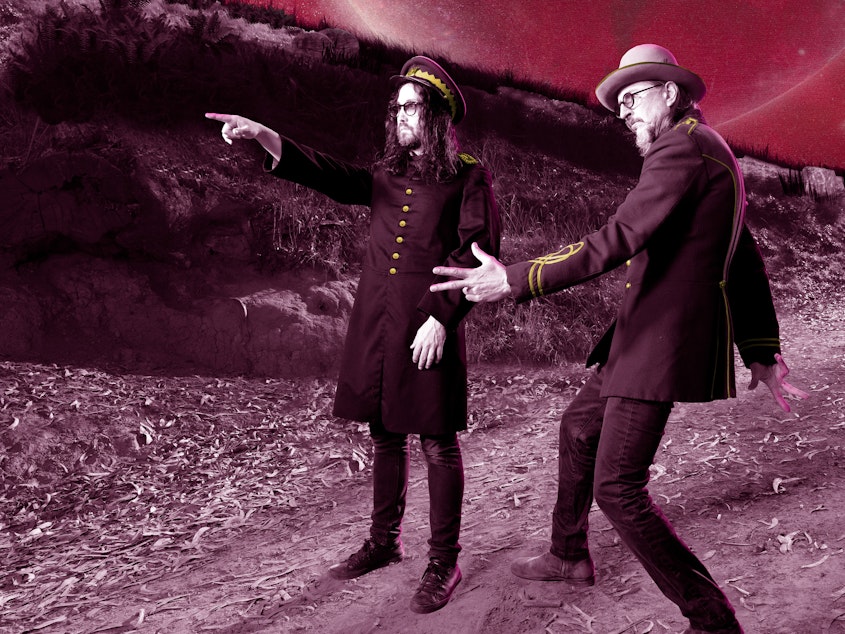The Claypool Lennon Delirium Balances A Classic Sound With Light Madness

Just when it seems the shadow of The Beatles can't get any longer and everything in rock has been done before, along come Sean Lennon and Les Claypool, asking the musical question: What if, instead of ducking The Beatles, you embraced the band's tricks — the galumphing marches, the sun-dazed harmonies — and then made them a little weird?
South of Reality is the second album by the duo, who perform as The Claypool Lennon Delirium. As the bassist and chief prankster of Primus, Claypool has always been a bit of a mad scientist, pushing his gawky, tottering funk-metal creations to the brink of absurdity. But he's also a secret pop fan, who says he's spent 30 years trying, with mixed results, to write catchy hooks. In Sean Lennon (famous son of John), Claypool has a collaborator with an instantly recognizable voice, for whom this kind of candy comes naturally.
The two began working together in 2015, after Lennon's band, The Ghost of a Saber Tooth Tiger, toured as an opening act for Primus. They released their debut in 2016, and began work on this follow-up with a week of open-ended jamming they recorded on their phones. Then, each went off and wrote songs built on those riffs.
As with The Beatles, it's clear who the primary composer is on each tune. But Claypool says both multi-instrumentalists felt comfortable offering tweaks and suggestions during the recording. Many of the songs explore a surreal intersection — where the fitful upheavals of progressive rock collide with soaring, blissed-out refrains.
Almost every track on South of Reality is defined by a balance of opposing forces. Lennon and Claypool complement each other in a sweet and savory way just like John and Paul did. Sure, there are echoes of The Beatles (how could there not be?). But these echoes serve as points of musical departure and lead to unexpected, often beautiful, destinations that feel way more 2019 than 1969. Sometimes, the only way out is through.
Sponsored
South of Reality is out now via ATO Records. [Copyright 2019 NPR]
